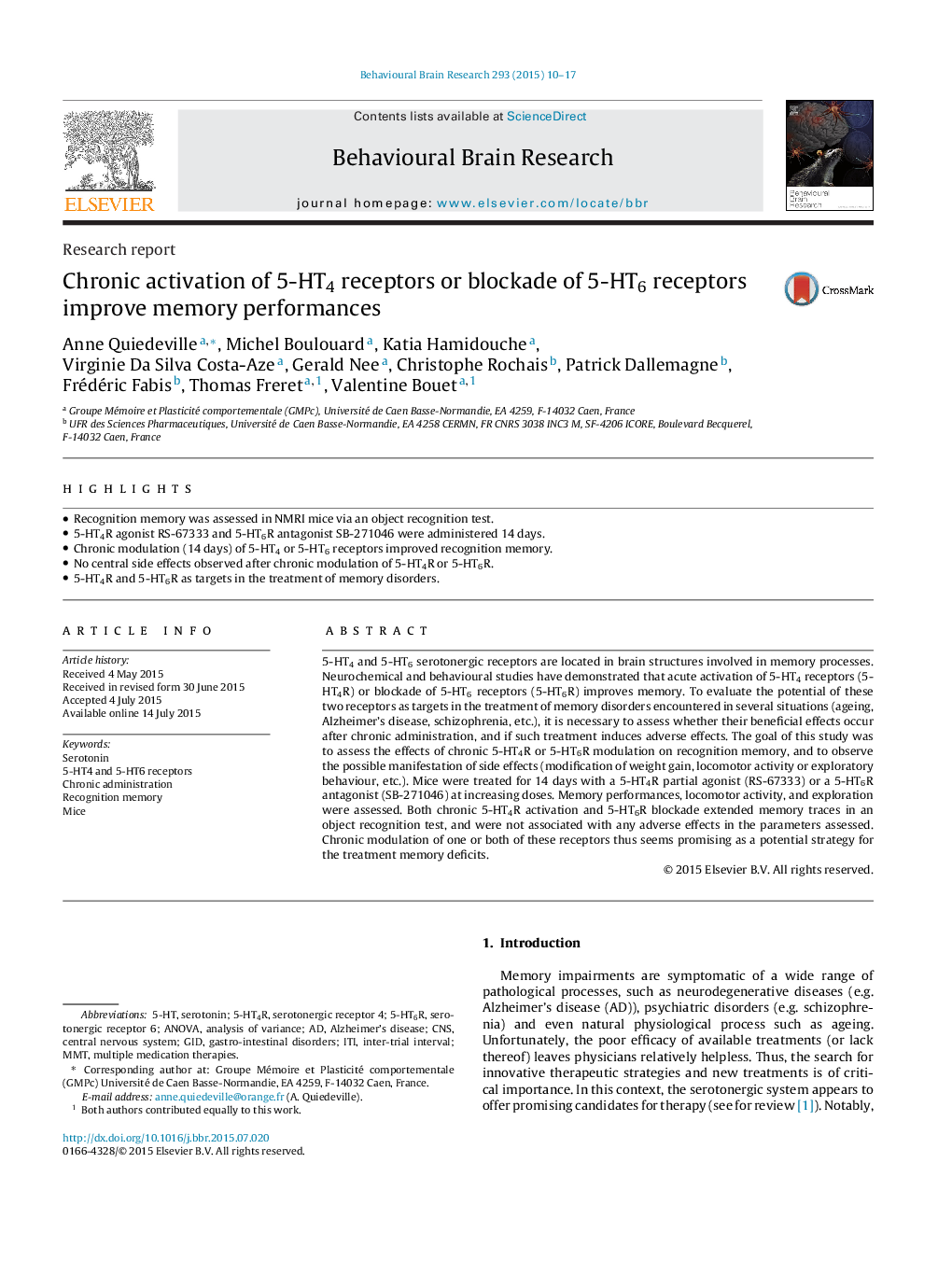| Article ID | Journal | Published Year | Pages | File Type |
|---|---|---|---|---|
| 6256584 | Behavioural Brain Research | 2015 | 8 Pages |
â¢Recognition memory was assessed in NMRI mice via an object recognition test.â¢5-HT4R agonist RS-67333 and 5-HT6R antagonist SB-271046 were administered 14 days.â¢Chronic modulation (14 days) of 5-HT4 or 5-HT6 receptors improved recognition memory.â¢No central side effects observed after chronic modulation of 5-HT4R or 5-HT6R.â¢5-HT4R and 5-HT6R as targets in the treatment of memory disorders.
5-HT4 and 5-HT6 serotonergic receptors are located in brain structures involved in memory processes. Neurochemical and behavioural studies have demonstrated that acute activation of 5-HT4 receptors (5-HT4R) or blockade of 5-HT6 receptors (5-HT6R) improves memory. To evaluate the potential of these two receptors as targets in the treatment of memory disorders encountered in several situations (ageing, Alzheimer's disease, schizophrenia, etc.), it is necessary to assess whether their beneficial effects occur after chronic administration, and if such treatment induces adverse effects. The goal of this study was to assess the effects of chronic 5-HT4R or 5-HT6R modulation on recognition memory, and to observe the possible manifestation of side effects (modification of weight gain, locomotor activity or exploratory behaviour, etc.). Mice were treated for 14 days with a 5-HT4R partial agonist (RS-67333) or a 5-HT6R antagonist (SB-271046) at increasing doses. Memory performances, locomotor activity, and exploration were assessed. Both chronic 5-HT4R activation and 5-HT6R blockade extended memory traces in an object recognition test, and were not associated with any adverse effects in the parameters assessed. Chronic modulation of one or both of these receptors thus seems promising as a potential strategy for the treatment memory deficits.
